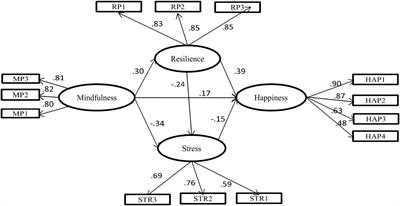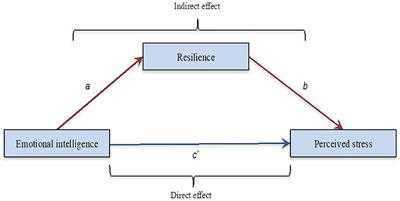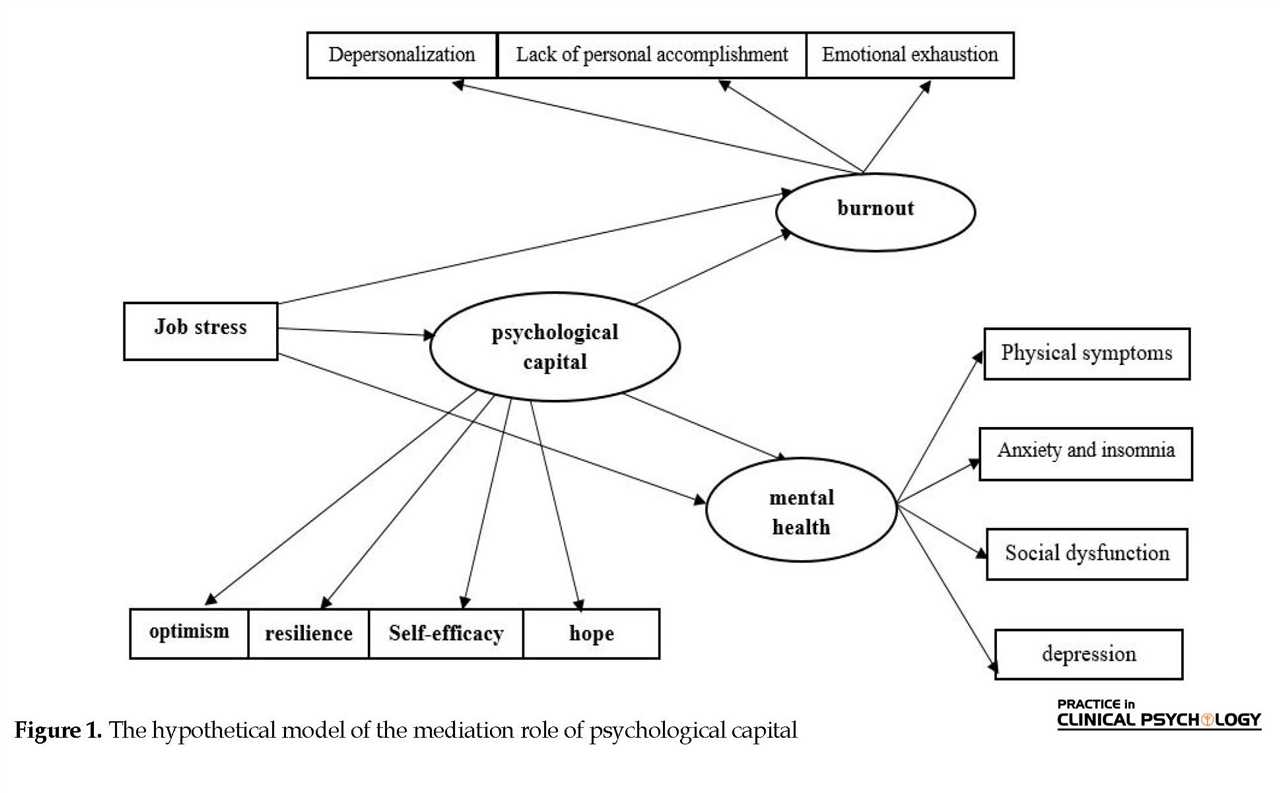
Stress is an inevitable part of life, affecting individuals from all walks of life. It can stem from various sources such as work pressure, personal relationships, or financial difficulties. While stress is often seen as a negative force, recent research has shed light on the role of resilience and optimism in mitigating its impact.
Resilience, defined as the ability to bounce back from adversity, plays a crucial role in how individuals cope with stress. Those with high levels of resilience are better equipped to handle challenging situations, adapting and recovering more quickly. Research suggests that resilience and stress are unrelated, meaning that individuals can experience high levels of stress while still demonstrating resilience.
Optimism, on the other hand, refers to the tendency to view situations in a positive light and believe in the possibility of good outcomes. Studies have shown that individuals with high levels of optimism are more likely to handle stress in a healthy manner. Optimistic individuals tend to perceive stress as a temporary and manageable challenge, which helps them maintain a positive mindset and approach stressful situations with confidence.
The Impact of Optimism on Stress

Optimism is a psychological trait that can have a significant impact on an individual’s experience of stress. Research has shown that individuals who possess a more optimistic outlook tend to have lower levels of stress compared to those who have a more pessimistic mindset.
One reason for this is that optimism helps individuals to view stressful situations as temporary and manageable. When faced with a challenging situation, optimists are more likely to believe that they have the ability to overcome it and that it is not a reflection of their overall abilities or worth. This belief can help to reduce the perceived threat of stress and make it easier to cope with.
Furthermore, optimism is unrelated to the actual presence of stressors in an individual’s life. It is possible for someone to experience high levels of stress but still maintain an optimistic outlook. This suggests that optimism acts as a buffer against the negative effects of stress, allowing individuals to maintain a sense of hope and resilience even in difficult circumstances.
Research has also shown that optimism can have a direct impact on an individual’s physical health, which can in turn influence their experience of stress. Optimistic individuals tend to have better overall health, including a stronger immune system and lower levels of inflammation. These physical benefits can help to protect against the harmful effects of stress and promote resilience.
| Effects of Optimism on Stress |
|---|
| 1. Reduces perceived threat of stress |
| 2. Enhances coping abilities |
| 3. Acts as a buffer against negative effects of stress |
| 4. Improves overall physical health |
In conclusion, optimism plays a crucial role in how individuals perceive and cope with stress. By promoting a positive outlook and enhancing resilience, optimism can help individuals to navigate through challenging situations with greater ease and maintain their well-being.
Positive Outlook and Stress Reduction

A positive outlook can have significant effects on stress reduction. When individuals maintain a positive mindset, they are better able to cope with stressful situations and are less likely to experience the negative effects of stress. Research has shown that optimism and resilience are closely related, and individuals who possess these traits are more likely to bounce back from stressful events.
Having a positive outlook allows individuals to view stress as unrelated to their overall well-being. They are able to see stress as a temporary state and believe that they have the ability to overcome it. This mindset enables individuals to approach stressful situations with a sense of control and confidence, reducing the impact that stress has on their mental and physical health.
Furthermore, a positive outlook helps individuals build resilience, which is the ability to adapt and recover from adversity. Resilient individuals are better equipped to handle stress and are less likely to be overwhelmed by challenging circumstances. They are able to maintain a sense of optimism and hope, even in the face of difficult situations.
Overall, cultivating a positive outlook can play a crucial role in stress reduction. By maintaining an optimistic mindset and building resilience, individuals can better manage stress and improve their overall well-being.
Coping Mechanisms and Optimism

Optimism plays a crucial role in how individuals cope with stress and build resilience. When faced with challenging situations, optimists tend to have a positive outlook and believe that they can overcome obstacles. This mindset allows them to approach stressors with a sense of hope and confidence, which can help reduce the impact of stress on their mental and physical well-being.
One of the key coping mechanisms that optimists often employ is reframing. This involves looking at a stressful situation from a different perspective and finding positive aspects or opportunities for growth. By reframing their thoughts, optimists can shift their focus away from the negative aspects of stress and instead focus on the potential for personal development or learning.
Another coping mechanism that is closely related to optimism is seeking social support. Optimistic individuals are more likely to reach out to others for help and guidance when faced with stress. They understand the importance of having a support system and believe that others can provide valuable insights and assistance. By seeking social support, optimists can gain different perspectives and strategies for managing stress, which can enhance their resilience.
Furthermore, optimists tend to engage in proactive problem-solving. Rather than becoming overwhelmed by stress, they actively seek solutions and take steps to address the underlying causes. This proactive approach allows optimists to regain a sense of control and reduce the impact of stress on their well-being.
In contrast, individuals who have a pessimistic outlook may struggle to cope with stress. Pessimism is unrelated to stress and resilience, as negative thoughts and a lack of hope can hinder effective coping mechanisms. Pessimists may be more likely to ruminate on stressors, which can prolong the negative effects of stress and hinder the development of resilience.
In conclusion, optimism plays a significant role in how individuals cope with stress and build resilience. Through reframing, seeking social support, and engaging in proactive problem-solving, optimists can effectively manage stress and reduce its impact on their well-being. In contrast, pessimistic individuals may struggle to cope with stress and may benefit from developing a more optimistic outlook.
The Role of Resilience in Managing Stress
Resilience plays a crucial role in managing stress and its effects on individuals. When faced with challenging situations, individuals with high levels of resilience are better able to cope and adapt. They possess the ability to bounce back from adversity and maintain a positive outlook, even in the face of stressors.
Optimism, a key component of resilience, allows individuals to perceive stress as temporary and manageable. This positive mindset enables them to approach stressful situations with a proactive and problem-solving attitude. They are more likely to seek support, develop effective coping strategies, and find meaning in their experiences.
Resilient individuals also possess strong emotional regulation skills, which help them manage stress more effectively. They are able to recognize and regulate their emotions, preventing them from becoming overwhelmed by stress. This ability to maintain emotional equilibrium allows them to think clearly and make rational decisions, even in high-pressure situations.
Furthermore, resilience helps individuals develop a sense of purpose and meaning in their lives. This sense of purpose provides them with motivation and a sense of direction, even when faced with stressors. It allows them to stay focused on their goals and maintain a positive outlook, despite the challenges they may encounter.
In conclusion, resilience plays a vital role in managing stress. It enables individuals to approach stress with optimism, develop effective coping strategies, regulate their emotions, and find meaning in their experiences. By cultivating resilience, individuals can better navigate the challenges of life and maintain their overall well-being.
Building Resilience to Combat Stress

Stress is a common part of life that can have negative effects on both our physical and mental well-being. However, by developing resilience, individuals can better cope with stress and minimize its impact on their lives.
Resilience refers to the ability to bounce back from adversity and adapt to change. It involves developing a set of skills and attitudes that enable individuals to withstand and recover from stressors. While stress and resilience are related, they are not unrelated. In fact, resilience can help individuals better manage and reduce the effects of stress.
One way to build resilience is by cultivating optimism. Optimistic individuals tend to have a positive outlook on life and see challenges as opportunities for growth. They believe in their ability to overcome obstacles and have confidence in their problem-solving skills. This optimistic mindset can help individuals approach stressors with resilience and a proactive attitude.
Another key factor in building resilience is developing a strong support network. Having a network of supportive friends, family, or colleagues can provide emotional support, practical assistance, and a sense of belonging. This support system can help individuals navigate through stressful situations and provide a buffer against the negative effects of stress.
Additionally, practicing self-care is essential for building resilience. Engaging in activities that promote physical and mental well-being, such as exercise, meditation, and hobbies, can help individuals recharge and reduce stress levels. Taking care of oneself allows individuals to better cope with stress and maintain a positive mindset.
Lastly, building resilience involves developing effective coping strategies. This may include problem-solving skills, stress management techniques, and the ability to regulate emotions. By learning and applying these strategies, individuals can better navigate through stressful situations and maintain a sense of control.
In conclusion, building resilience is crucial for combating the effects of stress. By cultivating optimism, developing a strong support network, practicing self-care, and learning effective coping strategies, individuals can enhance their resilience and minimize the negative impact of stress on their lives.
Resilience and Emotional Well-being

Resilience and emotional well-being are closely intertwined. Resilience refers to an individual’s ability to bounce back from difficult situations and adapt to adversity. It is a trait that allows people to maintain a positive outlook and cope effectively with stressors. On the other hand, emotional well-being refers to a person’s overall state of emotional health and happiness.
Studies have found that resilience and emotional well-being are strongly related. Individuals with high levels of resilience tend to have better emotional well-being, including lower levels of stress, anxiety, and depression. This is because resilience helps individuals to approach challenging situations with optimism and confidence, which in turn reduces the negative impact of stress.
It is important to note that resilience and emotional well-being are not completely unrelated to each other. While resilience can have positive effects on emotional well-being, emotional well-being can also contribute to the development of resilience. When individuals have a strong emotional well-being, they are better equipped to handle stress and setbacks, which in turn enhances their resilience.
Overall, the relationship between resilience and emotional well-being is a complex and dynamic one. Both traits have a reciprocal influence on each other, and together they play a crucial role in promoting an individual’s ability to cope with stress and maintain a positive outlook on life.
Examining the Link Between Optimism, Resilience, and Stress
Resilience and optimism are two psychological factors that have been found to play a significant role in individuals’ ability to cope with stress. While they are often related, it is important to examine the specific link between these two factors and stress.
Resilience refers to an individual’s ability to bounce back and adapt in the face of adversity. It involves the capacity to withstand and recover from difficult situations, such as stressors. On the other hand, optimism is the tendency to expect positive outcomes and maintain a positive outlook, even in challenging circumstances.
Research has shown that individuals with higher levels of resilience tend to experience lower levels of stress. This is because resilient individuals are better equipped to handle stressors and view them as temporary setbacks rather than insurmountable obstacles. Their ability to bounce back and adapt helps them maintain a sense of control and confidence, mitigating the negative effects of stress.
Similarly, optimism has been found to be inversely related to stress. Optimistic individuals tend to have more positive appraisals of stressors, perceiving them as challenges rather than threats. This positive mindset buffers the impact of stress and reduces the likelihood of negative psychological and physiological effects.
However, it is important to note that resilience and optimism are not completely unrelated to stress. While they may help individuals cope with stress, they do not eliminate stress entirely. Stress is a natural part of life, and everyone experiences it to some degree. Resilience and optimism simply enhance individuals’ ability to manage and adapt to stressful situations.
In conclusion, resilience and optimism play crucial roles in individuals’ ability to cope with stress. They are linked to lower levels of stress and help individuals maintain a positive outlook in the face of adversity. While they do not eliminate stress, they mitigate its effects and contribute to overall well-being.
The Synergistic Effects of Optimism and Resilience on Stress

Resilience and optimism are two psychological factors that have been extensively studied in relation to stress. Individually, both resilience and optimism have been found to have positive effects on stress levels. Resilience refers to the ability to bounce back from adversity and overcome challenges, while optimism is the tendency to have a positive outlook on life and believe in the possibility of positive outcomes.
Research has shown that individuals with high levels of resilience are better able to cope with stress and are less likely to experience negative psychological and physical effects. Similarly, individuals with a high level of optimism tend to have lower levels of stress and are more likely to engage in adaptive coping strategies.
However, recent studies have begun to explore the synergistic effects of resilience and optimism on stress. These studies have found that individuals who possess both high levels of resilience and optimism experience even greater benefits in terms of stress reduction. The combination of these two factors seems to create a protective buffer against the negative effects of stress.
One possible explanation for this synergistic effect is that resilience and optimism work together to enhance each other’s effects. Resilience may help individuals maintain a positive outlook in the face of adversity, while optimism may provide individuals with the motivation and belief in their ability to overcome challenges. Together, these factors may help individuals perceive stress as less threatening and more manageable.
Furthermore, the synergistic effects of resilience and optimism on stress may be unrelated to the presence of stressors themselves. Even in the absence of significant stressors, individuals with high levels of resilience and optimism may still experience lower levels of stress due to their inherent ability to cope with challenges and maintain a positive mindset.
In conclusion, the combination of resilience and optimism appears to have synergistic effects on stress reduction. These two psychological factors work together to create a protective buffer against the negative effects of stress. Understanding the relationship between resilience, optimism, and stress can have important implications for developing interventions and strategies to promote mental health and well-being.
Strategies to Cultivate Optimism and Resilience for Stress Management
Resilience and optimism play crucial roles in managing stress effectively. By cultivating these qualities, individuals can develop a mindset that allows them to navigate challenging situations with greater ease and bounce back from setbacks.
One strategy to cultivate resilience is to develop a strong support system. Surrounding oneself with positive and supportive individuals can provide a sense of belonging and help reduce stress levels. Engaging in regular social activities and maintaining healthy relationships can contribute to building a strong support network.
Another strategy is to practice self-care. Taking care of one’s physical and mental well-being is essential for building resilience. Engaging in activities such as exercise, meditation, and hobbies can help reduce stress and promote a positive outlook. It is important to prioritize self-care and make time for activities that bring joy and relaxation.
Additionally, reframing negative thoughts and focusing on the positive aspects of a situation can help cultivate optimism. By challenging negative beliefs and replacing them with more positive and realistic ones, individuals can develop a more optimistic mindset. This can help reduce stress levels and improve overall well-being.
Setting realistic goals and breaking them down into manageable steps can also contribute to building resilience. By taking small, achievable actions towards a larger goal, individuals can maintain a sense of progress and accomplishment, even in the face of challenges. This can help build confidence and resilience in the long run.
Lastly, practicing gratitude can be a powerful tool for cultivating optimism and resilience. Taking the time to acknowledge and appreciate the positive aspects of life can help shift focus away from stress and adversity. Keeping a gratitude journal or regularly expressing gratitude to others can help foster a positive mindset and strengthen resilience.
In conclusion, cultivating optimism and resilience is essential for effective stress management. By developing a strong support system, practicing self-care, reframing negative thoughts, setting realistic goals, and practicing gratitude, individuals can build the resilience needed to navigate stress and its unrelated effects.

I am Patrina de Silva, a psychologist and mental health blogger in Sri Lanka. After obtaining psychology degrees from the University of Colombo and Monash University, I returned home to work as a counselor while also starting the popular blog “Pressy but Happy” to provide advice on psychological issues. Over the past decade, my empathetic articles have made my blog a leading mental health resource in the country. In addition to writing, I maintain a private therapy practice, frequently volunteer counseling time, and conduct seminars, driven by my passion for destigmatizing mental illness and educating the public on the mind-body connection. I strive to be an influential voice in my field through my compassionate approach.
